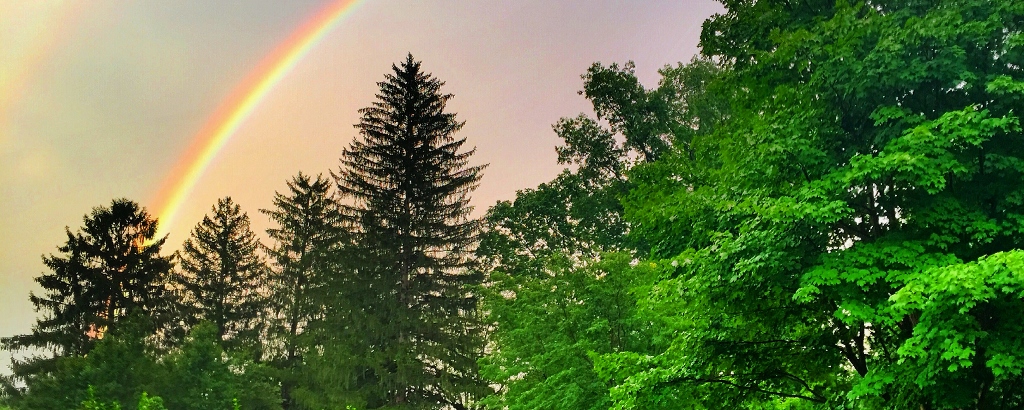I was thirteen when my parents told my sisters and me they were separating and fifteen when we moved out of the parsonage where I grew up. My father, a UCC pastor at a small church in a New England fishing town, decided to leave the church to spare our tight-knit community the pain of a split. Pastoring was his sole vocation, and my mother stayed home with us. They both took low-paying jobs in fields that were unfamiliar to them. Were it not for the hospitality of friends who opened their doors to our family, and without the safety net of grandparents, we likely would have ended up without a place to live. To be certain, though, we’d lost ‘home.’
of the parsonage where I grew up. My father, a UCC pastor at a small church in a New England fishing town, decided to leave the church to spare our tight-knit community the pain of a split. Pastoring was his sole vocation, and my mother stayed home with us. They both took low-paying jobs in fields that were unfamiliar to them. Were it not for the hospitality of friends who opened their doors to our family, and without the safety net of grandparents, we likely would have ended up without a place to live. To be certain, though, we’d lost ‘home.’
With few options that fit our financial reality, my father lived with a family from church and later shared an apartment with a college student. My sisters and I moved with my mother to a new low-to-moderate-income housing development downtown; it was formerly a really rough neighborhood we had worked to revitalize with our church and Habitat for Humanity just a few years before. We went from volunteers to clients in the blink of an eye. It was incredibly humbling.
Just as significant as losing our house was losing our spiritual home. We attended new churches and went to new youth groups. Nothing clicked. I felt isolated, and suffered without speaking a word. We were all still reeling. I’m not sure why he thought to do this, but my father called the new pastor of our old church, Howie, an educator who also ministered. Howie didn’t give a list of other churches to call or people to connect with. His response was simple: you are welcome here. Here, you have a home.
The gesture Howie made was totally taboo and not politically correct for a new pastor to make to the former. It’s certainly unheard of in most institutions, not just the church. Howie put aside any discomfort he might have felt as he eased himself in to lead this group of people, and asked the congregation to do the same. He did it quietly and graciously, and I’m sure not without backlash. He did it so that hurting people could be home again.
Howie died after a brave battle with brain cancer several years ago. I’m not sure I was able to fully express my gratitude to him, but in my work with Family Promise and in my own home, I strive to live up to his example of offering hospitality, not just when it’s convenient or when people are watching, but when it feels like the hardest thing to do and when we won’t receive any praise. I’m blessed to be surrounded by a community of people at Family Promise from whom I can learn the traits of hospitality—a community that offers it to our guests each day with open doors, open hearts, and a chance for families to be whole again.


